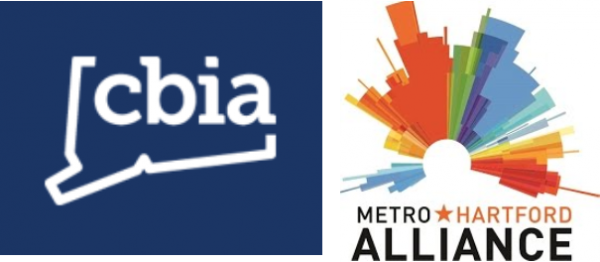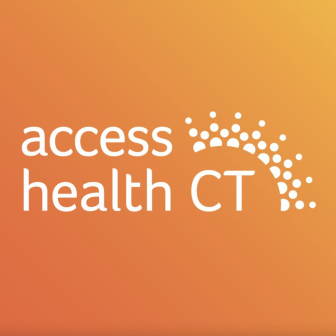New London’s Hearing Youth Voices is Finalist for Region’s First-Time $50,000 Prize
/Hearing Youth Voices, a youth-led social justice organization working to create systemic change in the education system in New London, is one of seven youth organizations in New England with a chance to win a $50,000 grant from The Nellie Mae Education Foundation, the largest philanthropic organization in the region focused exclusively on education.
The first-ever Nellie Mae Education Foundation Youth Organizing Award honors a New England youth organizing group that has shown tremendous commitment to advancing student-centered learning or redesigning education to meet the needs of all students - specifically focused on public secondary education.
At Hearing Youth Voices (HYV), youth leaders identify issues, research solutions, and run campaigns aimed at making concrete, meaningful changes in their public schools. The core membership and leadership are working class youth of color, many of whom are also LGBTQI, and/or immigrant, and/or have been pushed out of school.
The winner from among the finalists will be decided by online votes of the public, during a month of balloting. From November 1 at 12:00 PM EST – November 30 at 12:00 PM EST, the public is invited to vote for finalists through email on the Students at the Center Hub and via text message. The organization with the most votes will receive a $50,000 grant to continue the organization's work around advancing student-centered learning or redesigning education to meet the needs of all students.
Hearing Youth Voices describes itself as “a youth-led organization that trains young people of color to organize, fight, and deconstruct systems of oppression in our community.” Recently, HYV youth ran the “We Want to Graduate Campaign,” which focused on systemic obstacles to students graduating, specifically absence-based credit loss and suspensions.
After two years of hard work on the part of hundreds of youth, the New London Public Schools (NLPS) revised its attendance policy to offer supportive interventions instead of punishments for absent students, a change that affected the more than 3,000 students and families in NLPS. Additionally, HYV youth worked alongside a broader coalition of parent advocates, school staff, and Board of Education members to create the district's first-ever Restorative Practices pilot project.
Most recently, HYV successfully advocated for students to become voting members of the Board of Education's Policy Committee, integrating student voice into the highest level of policy decision-making in the district. Youth leaders identify issues, research solutions, and run campaigns aimed at making concrete, meaningful changes in their public schools.
“Our seven Youth Organizing Award finalists are leaders in promoting student ownership and voice as part of school decision-making in New England,” said Nick Donohue, president and CEO of the Nellie Mae Education Foundation. “These students have committed themselves to improving educational experiences for their peers while building the knowledge and skills which will serve them long after graduation. I’m proud to offer a well-deserved congratulations on the great work they’ve achieved as well as the impact they are making for future students.”
In a student-centered environment, learning is personalized, competency-based, happens anytime, anywhere and allows students to take ownership of their education. Student-centered learning prepares students to master the academic knowledge, critical thinking, problem solving and communication skills they need to thrive.
Also vying for the prize are Portland Empowered (Maine), Sociedad Latina (Boston), Granite State Organizing Project (New Hampshire), Young Voices (Providence), Providence Student Union (Providence), and UP for Learning (Vermont).
The HYV website explains that “our work is different- it is about collective action to solve systemic problems. We don't want to make life easier for one young person or one family. We want to go right down to the root of the problem and fix the system so that no more youth and families have that problem! And we believe that the people who have lived the problem are experts on it and need to help define what the solution could be.......and lead the charge to make that change happen.”
The Nellie Mae Education Foundation supports the promotion and integration of student-centered approaches to learning at the high school level across New England—where learning is personalized; learning is competency-based; learning takes place anytime, anywhere; and students exert ownership over their own learning. To elevate student-centered approaches, the Foundation utilizes a four-part strategy that focuses on: building educator ownership, understanding and capacity; advancing quality and rigor of SCL practices; developing effective systems designs; and building public understanding and demand.
https://youtu.be/WtTuHED6TM4



 Unite For Sight's international eye care services with partner local eye clinics are provided year-round and are comprehensive, including examinations by local eye doctors, diagnosis and care for treatable conditions, education, and preventative care. The organization’s website indicates that Unite For Sight has provided eye care services to more than 2.1 million people worldwide, including more than 93,166 sight-restoring surgeries.
Unite For Sight's international eye care services with partner local eye clinics are provided year-round and are comprehensive, including examinations by local eye doctors, diagnosis and care for treatable conditions, education, and preventative care. The organization’s website indicates that Unite For Sight has provided eye care services to more than 2.1 million people worldwide, including more than 93,166 sight-restoring surgeries.
 The conference also includes Social Impact Labs, which provide an opportunity for selected speakers to present their new idea in the format of a 5-minute pitch. All of the presentations are ideas that are being developed, meaning that the ideas are in the brainstorming, early development, or early implementation stage. Following each presenter’s 5-minute pitch, there is a 15-minute period for discussion and coaching with two expert speakers, questions, answers, and feedback from the audience.
The conference also includes Social Impact Labs, which provide an opportunity for selected speakers to present their new idea in the format of a 5-minute pitch. All of the presentations are ideas that are being developed, meaning that the ideas are in the brainstorming, early development, or early implementation stage. Following each presenter’s 5-minute pitch, there is a 15-minute period for discussion and coaching with two expert speakers, questions, answers, and feedback from the audience.



 Lewis’ commitment and dedication impressed the judging panel.
Lewis’ commitment and dedication impressed the judging panel.

 “Wholesome Wave is thrilled by the innovations that USDA is supporting through the new FINI grants, which are taking the work of increasing affordable access to healthy food to even greater levels of impact,” said Michel Nischan, CEO & Founder of Wholesome Wave. “So many SNAP shoppers are working parents with limited time to source healthier food choices. Through the new Farm-to-Grocery model, our partners in Connecticut and Vermont will be able to expand affordable access to SNAP consumers in a way that allows them to find and purchase more healthy food from a variety of retailers.”
“Wholesome Wave is thrilled by the innovations that USDA is supporting through the new FINI grants, which are taking the work of increasing affordable access to healthy food to even greater levels of impact,” said Michel Nischan, CEO & Founder of Wholesome Wave. “So many SNAP shoppers are working parents with limited time to source healthier food choices. Through the new Farm-to-Grocery model, our partners in Connecticut and Vermont will be able to expand affordable access to SNAP consumers in a way that allows them to find and purchase more healthy food from a variety of retailers.”

 The Foundation invested 30 percent of its grants in education from birth through high school, and new and renewed college scholarship, according to the report. Grants for family and social services received 20 percent; health – 11 percent; arts and culture – 11 percent; community and economic development – 19 percent, general – 5 percent and summer programs – 4 percent.
The Foundation invested 30 percent of its grants in education from birth through high school, and new and renewed college scholarship, according to the report. Grants for family and social services received 20 percent; health – 11 percent; arts and culture – 11 percent; community and economic development – 19 percent, general – 5 percent and summer programs – 4 percent.
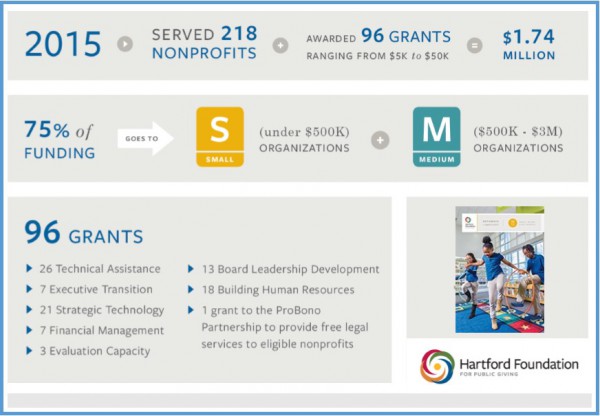
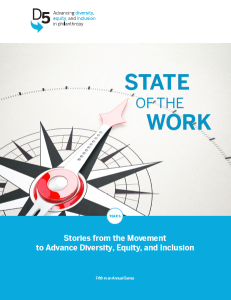
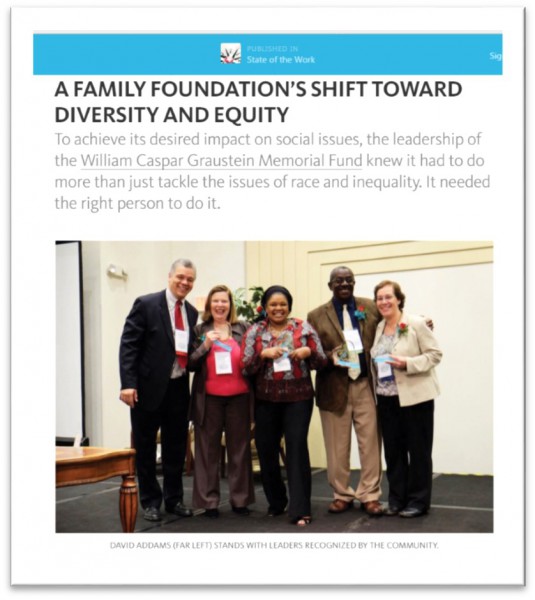 The D5 final report features stories about leaders in foundations and other philanthropic organizations taking meaningful action to advance DEI. “Storytelling is one of the most powerful ways to inspire action and change. We hope people working within foundations—whether they are a CEO, an HR manager or a program officer—draw on the important lessons from these stories, and apply them to their own unique situations,” said Kelly Brown, D5 Director. Kelly also cited statistics indicating that “when companies commit themselves to diverse leadership, they are more successful. Foundations and nonprofits,” she said, “have the opportunity to take a page from successful business playbooks.”
The D5 final report features stories about leaders in foundations and other philanthropic organizations taking meaningful action to advance DEI. “Storytelling is one of the most powerful ways to inspire action and change. We hope people working within foundations—whether they are a CEO, an HR manager or a program officer—draw on the important lessons from these stories, and apply them to their own unique situations,” said Kelly Brown, D5 Director. Kelly also cited statistics indicating that “when companies commit themselves to diverse leadership, they are more successful. Foundations and nonprofits,” she said, “have the opportunity to take a page from successful business playbooks.”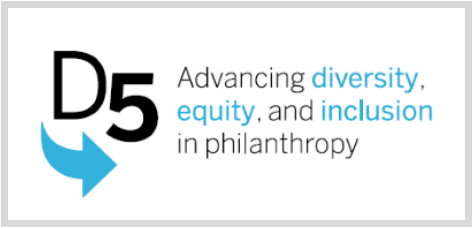
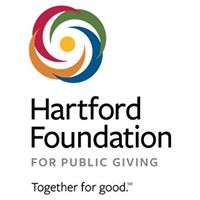
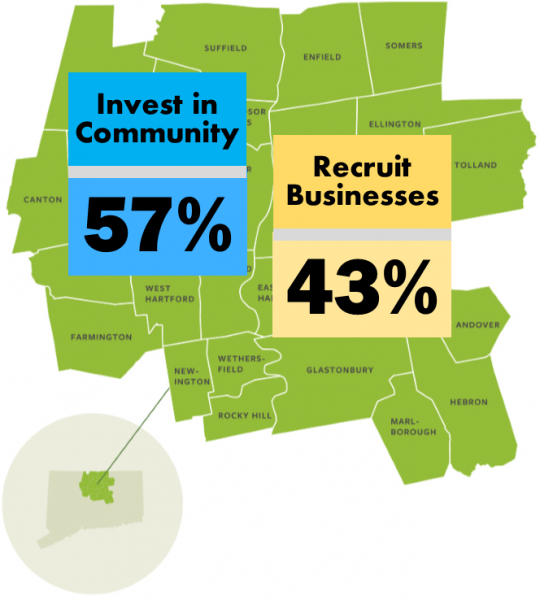 The data from the survey reflect a difference of opinion among older residents of the region. Individuals over age 46 took the opposite view from younger residents, with a majority expressing a preference for spending skewed toward recruiting companies. The reversal was dramatic, with two-thirds of those age 36-45 preferring investing in communities, by a margin of 67%-33%, and individuals age 46-55 expressing a preference for resources to be aimed at recruiting companies, with two-thirds holding the opposite view, 63%-38%.
The data from the survey reflect a difference of opinion among older residents of the region. Individuals over age 46 took the opposite view from younger residents, with a majority expressing a preference for spending skewed toward recruiting companies. The reversal was dramatic, with two-thirds of those age 36-45 preferring investing in communities, by a margin of 67%-33%, and individuals age 46-55 expressing a preference for resources to be aimed at recruiting companies, with two-thirds holding the opposite view, 63%-38%.

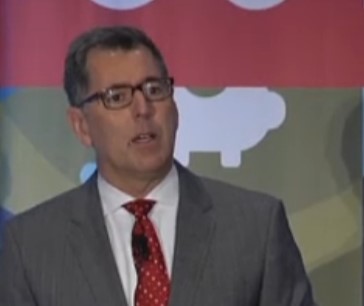 Since entering the Connecticut market in the summer of 2014, the company has been aggressively growing its customer base in a competitive market while working diligently to grow and expand its network of doctors. Harvard Pilgrim Health Care announced recently that its Connecticut membership has grown to more than 24,000, exceeding expectations for 2015. It now serves more than 800 Connecticut businesses. Twenty-nine of the state’s 30 hospitals are now in-network.
Since entering the Connecticut market in the summer of 2014, the company has been aggressively growing its customer base in a competitive market while working diligently to grow and expand its network of doctors. Harvard Pilgrim Health Care announced recently that its Connecticut membership has grown to more than 24,000, exceeding expectations for 2015. It now serves more than 800 Connecticut businesses. Twenty-nine of the state’s 30 hospitals are now in-network. With more than 500 business leaders in attendance at an annual Economic Summit & Outlook last week, brought together by the Connecticut Business and Industry Association and MetroHartford Alliance, Schmitt spent some time touting a new model launched in the state of New Hampshire that he believes may be a glimpse into the direction the industry is moving. Harvard Pilgrim Health Care’s footprint in New England now covers “where 90 percent of New Englanders live,” in Massachusetts, Connecticut, Maine and New Hampshire.
With more than 500 business leaders in attendance at an annual Economic Summit & Outlook last week, brought together by the Connecticut Business and Industry Association and MetroHartford Alliance, Schmitt spent some time touting a new model launched in the state of New Hampshire that he believes may be a glimpse into the direction the industry is moving. Harvard Pilgrim Health Care’s footprint in New England now covers “where 90 percent of New Englanders live,” in Massachusetts, Connecticut, Maine and New Hampshire. 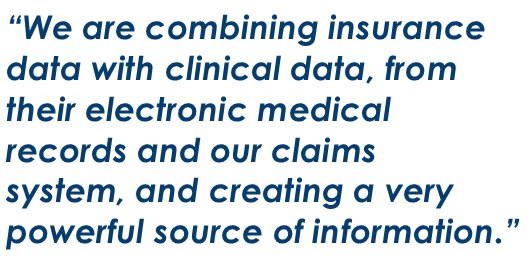
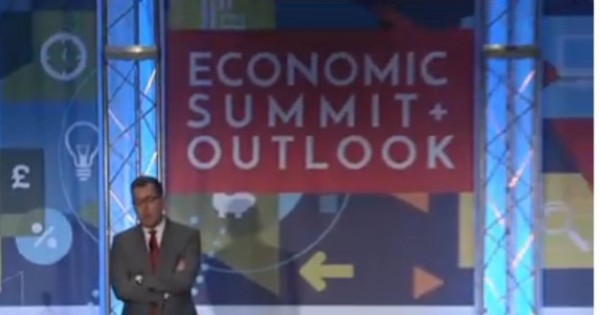 Launched
Launched